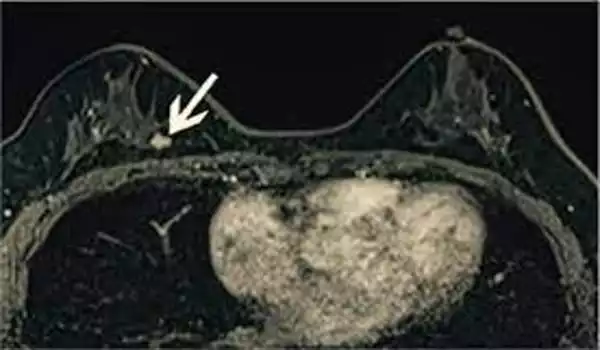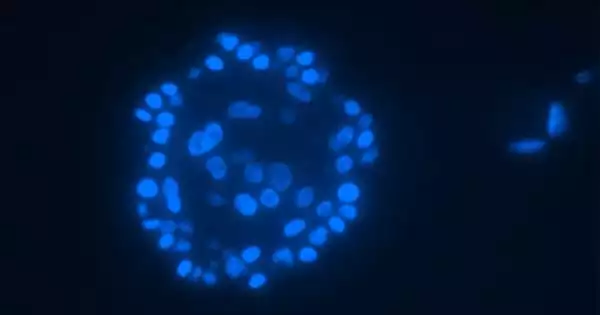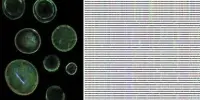Breast cancer that recurs after first treatment is known as recurrent breast cancer. Although the initial therapy is designed to eliminate all cancer cells, some may have escaped and survived. These undiscovered cancer cells proliferate and cause recurrent breast cancer. Breast cancer recurrence can occur months or years after your initial therapy. The cancer may return in the same location as before (local recurrence), or it may spread to other parts of your body (distant recurrence).
Georgetown Lombardi Comprehensive Cancer Center researchers have uncovered genetics and other characteristics that can identify if a woman is at risk for a recurrence of breast cancer, opening up new research possibilities for preventing a new tumor from emerging. The breakthrough was made possible by a cutting-edge technology created at Georgetown Lombardi that allows laboratory researchers to greatly expand, or multiply, difficult-to-extract breast tissue cells. The discovery was published in the journal Scientific Reports.
The researchers concentrated on breast epithelial cells, which create the ducts and lobes that produce milk during lactation. The cells were retrieved from donated non-cancerous tissue from the same breast that had malignant tissue removed after a mastectomy. The scientists were looking for a variety of characteristics that could trigger recurrence, but their major focus was the transcriptome, which is the full collection of RNA sequences in a cell that helps control when and where each gene is switched on or off in a cell.
We anticipate that our findings may lead to more accurate and directed screening in the future, sparing women from unnecessary treatments as we currently test practically all women between the ages of 40 and 70, sometimes aggressively.
Professor Priscilla Furth
Even when surgical procedures improve, undetected microscopic tumor pieces can survive and have a role in breast cancer recurrence in up to 15% of women, often years after surgery; persons with hormone-receptor positive breast cancer have the highest risk of recurrence.
The researchers discovered dramatically changed RNA in enlarged epithelial cells from women who had chemotherapy prior to surgery. They discovered significant alterations in genes that had previously been identified as prognostic factors for malignancy.
“When a person is diagnosed with breast cancer, we have numerous techniques, including testing for genes such as BRCA1/2, to determine whether they should get specific types of chemotherapy or only hormone therapy. However, the tools we have are not as exact as we would like” Priscilla Furth, M.D., professor of oncology and medicine at Georgetown Lombardi and corresponding author of the study, states “In the developed world, one out of every eight women is diagnosed with breast cancer. We anticipate that our findings may lead to more accurate and directed screening in the future, sparing women from unnecessary treatments as we currently test practically all women between the ages of 40 and 70, sometimes aggressively.”

The researchers also mentioned that some of the RNA modifications were linked to mammary stem cell development, which has ramifications for people who have never had breast cancer. Stem cells self-renew and are involved in growth and development. Adult stem cells that can develop or alter function into specialized mammary epithelial cells are known as mammary stem cells. If these cells become dysregulated, the risk of cancer increases. The researchers were particularly interested in cells from pregnant women because pregnancy normally causes extra renewing cycles in a cell, potentially raising the risk of cancer.
This research effort was considerably supported by the conditionally reprogrammed cells (CRC) technology, which was devised and patented at Georgetown. CRC was utilized in this investigation to isolate epithelial cells. CRC is the only known system that can generate healthy and cancer cells indefinitely; up to a million new cells can be grown in a week. Previously, one of the major challenges in researching these cells was that epithelial cell cultures were frequently contaminated with other cell types, particularly fibroblasts, which grow quickly in culture while epithelial cells develop slowly. Primary tumor cells can also be difficult to isolate, although the researchers had more success with the CRC methodology than with conventional procedures.
“Many of our cancer survivors tell me, “Please undertake work that will assist my kid.” That is why I work in cancer prevention, I respond “says Furth “Anything we can do to avoid the occurrence or recurrence of cancer is a huge step forward, and we believe this result may be an important contribution to minimizing misdiagnosis as well as hint to approaches to develop better treatments to treat the disease.”















